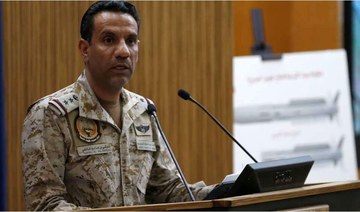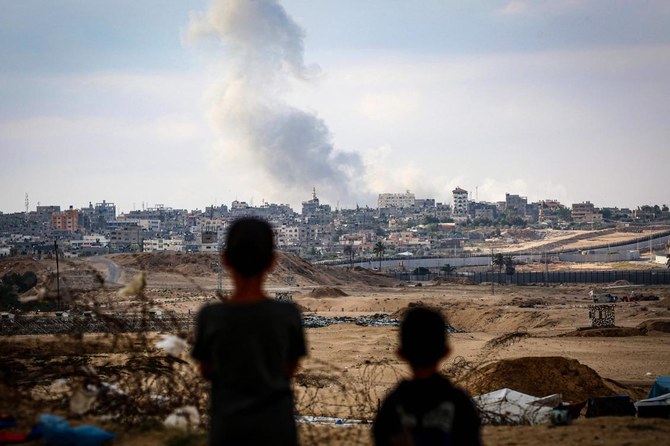DUBAI: Saudi-led coalition forces and Iran-backed Houthi militias reached an agreement on Sunday on the largest prisoner swap since the conflict in Yemen began in 2015.
The Houthis will release 400 coalition prisoners and the Yemeni government will free 681 Houthi fighters.
The deal follows a week of talks in Switzerland and builds on the release plan that the two sides agreed in Amman in February.
There are four high-profile prisoners in the agreement, including Gen. Nasser Mansour Hadi, brother of Yemeni President Abed Rabbo Mansour Hadi. He will be in the yet-to-be-agreed second phase of the exchange of about 350 people.
The Yemeni president had been reluctant to agree to the prisoner swap until the second group that included his brother was agreed, a diplomatic source told Arab News.
Saudi Arabia’s Deputy Defense Minister Prince Khalid bin Salman had to personally persuade Hadi to agree to the 1,081 prisoners exchanged, the source said.
Martin Griffiths, the UN special envoy for Yemen, said he wanted to build on the agreement to pave the way for a national cease-fire and a political solution to end the war. “I was told that it’s very rare to have prisoner releases of this scale during the conflict, that they mostly happen after a conflict,” he said. “I urge the parties to move forward immediately with the release and to spare no effort in building upon this momentum to swiftly agree to release more detainees.”
“Our overall aim at the moment is to bring an agreement on what we call a joint declaration, which is a national cease-fire to end the war in Yemen.”
Griffiths and an official from the International Committee of the Red Cross (ICRC) are in Switzerland leading a committee overseeing a prisoner swap deal first agreed at peace talks in Dec. 2018.
The next step would be measures to open up ports, airports, and roads, Griffiths said. “This achievement here I think will undoubtedly have a bounce effect for that, that it will encourage the parties to go the extra mile to resolve final differences.
“So what we will be looking to do as a result of the announcement here today is in the coming days ... to go and visit the parties to finalize the specifics of that agreement. And it’s important because it ends the war.”
Fabrizio Carboni, the ICRC Middle East regional director, said the agreement was "a positive step for hundreds of detainees and their families back home who have been separated for years and will be reunited soon."
"We call on all parties to continue with the same urgency towards agreeing on a concrete implementation plan, so this operation can move from signatures on paper to reality on the ground," he said.
The Sweden deal contained a prisoner swap which aimed for the release of some 15,000 detainees, split between both sides, but has been slowly and only partially implemented.
The Houthis last year freed 290 prisoners and Saudi Arabia released 128, while a locally mediated swap in Taiz governorate saw dozens freed. In January 2020, the ICRC facilitated the release of six Saudis held by the Houthis.
Yemeni Minister of Human Rights, Mohamed Askar, said he hoped that the latest prisoner exchanged agreement would lead to peace in Yemen and end to human rights violations after six years of war.
“We will continue efforts to alleviate the suffering of our people and…to achieve permanent and comprehensive peace for all Yemenis,” Askar said in a tweet shortly after the deal was announced.
Elisabeth Kendall, Yemen analyst and research fellow at University of Oxford, said that although the deal was a long way from the 16,000 prisoners that was reportedly agreed in Stockholm at the end of 2018, it is a move in the right direction.
“This step has to be viewed positively, given how polarized the warring sides now are and how intractable the conflict has become,” Kendall told Arab News.
However, she cautioned that this “trust-building measure” will only be effective if it is implemented, as previous failed agreements have led to mistrust between the warring sides.
“A prisoner swap is nowhere even close to tackling the vast gap that needs to be closed between the warring sides before peace talks can get underway.”
(With Reuters)


























